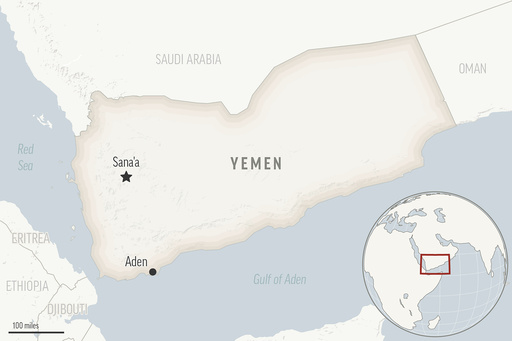
A series of Israeli airstrikes targeted Yemen’s primary airport on Thursday, coinciding with comments from the director-general of the World Health Organization (WHO), who noted he was about to board a flight at that location. Tedros Adhanom Ghebreyesus posted on X that a crew member of a U.N. flight sustained injuries during the assault. The Israeli military stated that it aimed at infrastructure utilized by the Houthi rebels in the region, asserting that these sites were involved in the smuggling of Iranian arms and the entry of high-ranking Iranian officials. This week’s activity comes in the aftermath of a previous Israeli operation that struck Sanaa and Hodeida, resulting in nine fatalities. Additionally, the U.S. military has recently engaged with Houthi positions in Yemen as well.
The uptick in Israeli strikes is a direct response to the Houthi launches, which had triggered air-raid alerts in Israel. The Houthis, demonstrating their support for the Palestinians in Gaza, have also escalated their attacks on maritime operations in the Red Sea. The ongoing conflict in Gaza has reportedly led to over 45,000 Palestinian deaths, with a significant portion of those being women and children, according to figures released by Gaza’s Health Ministry.
Recent reports indicate that at least three individuals lost their lives, with many more sustaining injuries in the Israeli airstrikes on Yemen’s Sanaa International Airport. A U.N. team, led by the WHO chief, was preparing to board a plane when the bombing occurred. Fortunately, the remaining team members evacuated safely. Assessments of the airport’s damage are anticipated to take place Friday morning to determine whether the U.N. personnel can depart Yemen. U.N. Secretary-General Antonio Guterres criticized the escalation of violence in Yemen and Israel, describing the attacks on both the airport and key infrastructure as deeply disturbing.
Another humanitarian crisis is unfolding in northwest Syria, where around 730,000 displaced individuals are reportedly facing severe winter conditions due to flooding and adverse weather. According to the U.N. Office for the Coordination of Humanitarian Affairs (OCHA), heavy rainfall has left thousands of family tents damaged, impacting families who have already been displaced. Concerns are also raised regarding the presence of explosive ordnance, with numerous civilian casualties reported in recent weeks.
In a different context, the Israeli attorney general has initiated an investigation into Sara Netanyahu, the wife of Prime Minister Benjamin Netanyahu, following allegations by a television report that she harassed political rivals and witnesses concerning her husband’s corruption case. The report revealed communications that implied coordination to organize protests against opponents, although official comments from the Justice Ministry did not specifically identify her.
U.S. officials have come under scrutiny for intervening in humanitarian matters in Gaza after they were said to have influenced the retraction of a warning regarding famine conditions in northern Gaza. This controversial action has raised alarms among humanitarian groups who express concerns about U.S. political influence in famine monitoring.
Iran has issued a strong denunciation of the recent Israeli strikes in Yemen, with calls for international intervention to protect Islamic nations from perceived aggression. This condemnation echoes sentiments regarding the complexities of regional conflicts, especially given the rise of the Houthi attacks targeting Israel in recent days.
Furthermore, WHO’s Tedros shared that he narrowly escaped injury during the airstrikes, reiterating that the team was in Yemen to discuss the release of detained U.N. staff and to assess the country’s dire health and humanitarian situation, which is currently regarded as one of the worst globally.
In addition to ongoing tensions in Yemen, reports highlight that the Israeli military has launched strikes against the Houthis and other rebel positions, asserting these actions are to deter militia actions aimed at Israel. Amid these developments, the broader regional dynamics are continually shifting, with increased military activity and political maneuvering reflecting the complexities of the conflict landscape.
In other news, thousands attended a funeral in northeastern Syria for six fighters from a Kurdish-led group who perished in clashes with Turkish-backed militias. The rising tensions exemplify the challenging security conditions facing Kurdish forces in the region.
Lastly, Lebanon’s military has reported incursions by Israeli troops in southern Lebanon, deemed a breach of the ceasefire agreement. These developments further highlight the volatility in the region, as communities grapple with the aftermath of military engagements and the broader implications on humanitarian conditions.

